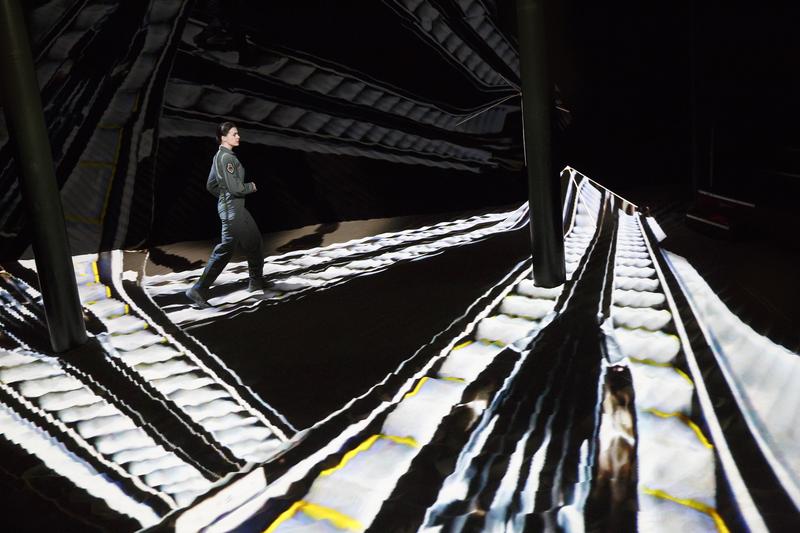
We first see Anne Hathaway as the unnamed pilot in her flight suit, facing away from us, a stream of sand pounding down on her helmet. She's standing on waves of sand, a small pyramid in the distance, and as we watch, her shadow gets longer and longer until it looks menacing.
Hathaway's character in "Grounded," at the Public Theater, has been stopped from flying jets because of a pregnancy, and returns as a drone pilot — not to Iraq or Afghanistan, but to a facility in the desert outside Las Vegas.
Her husband and young child join her there, and so every day, she goes through the same routine: up at 7 a.m., a long drive through the sand, a 12-hour shift where she protects a U.S. military convoy far away by blowing up "military-aged males" and then a return to her husband and daughter and regular life — until 7 a.m. the next morning, when she heads off to war again. It is confusing. It is boring. Yet she holds life-and-death decisions in her hands.
Hathaway prowls around the small stage for 85 minutes, as her character feels more and more trapped in this new life in the derisively-named "chair force." She plays a guy's girl, the kind of woman who tells jokes with the boys. She is at first cocky, then angry, then more and more unhinged. She is a "god in the sky" and as she continues to pass judgement on those far away who are driving too fast in their jeeps, or who dare to linger by the side of a road, she starts seeing cameras everywhere — at the mall, for example. She no longer feels safe.
Director Julie Taymor and her team (scenic designer Riccardo Hernandez, lighting designer Christopher Akerlind and sound designer Will Pickens) create a Big Brother's world, thanks in large part to Peter Nigrini's projections. The entire stage becomes a screen where we see what she sees: shadowy figures and the gray blank of the desert. The images morph from invigorating to claustrophobic as the pilot becomes more and more isolated — she can't even grab a beer with others in her unit to let off steam, because their shifts are staggered.
Drones as weapons of war are controversial, but playwright George Brant hasn't written a political manifesto. Instead, this work gets under the skin of one pilot and shows how this new kind of warfare mentally destroys her while she spends her days destroying the lives of others, a half a world away.
